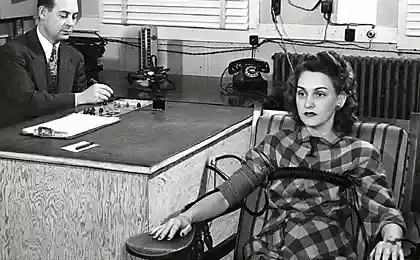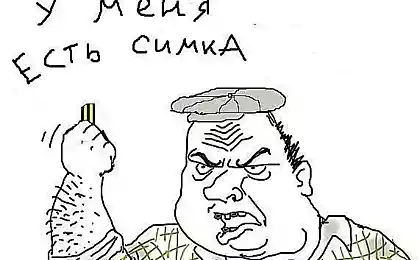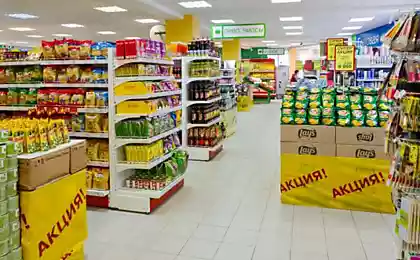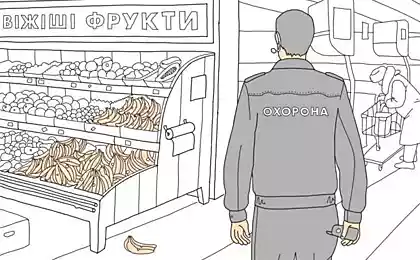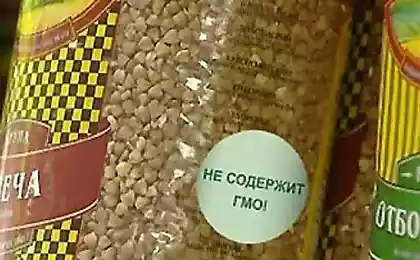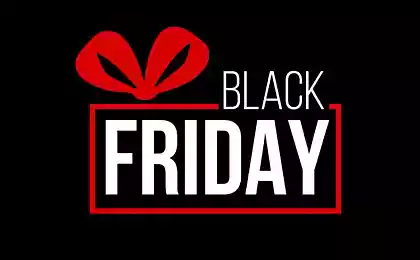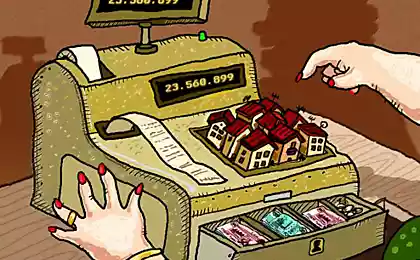189
Vigilant pensioner told how he tried to count at the checkout in the supermarket, new forms of deception appeared
Buying food at the store is stressful. People spend most of their wages on food. Especially before the holidays, there is chaos in supermarkets. People are in a hurry to buy goods at a discount, supermarket workers do not have time to change price tags and mistakenly punch an extra product at the checkout. Is that wrong?
I am used to looking at the check after buying groceries immediately, as I have repeatedly faced fraud at the checkout. Today we are going to talk about how we are cheated on a daily basis in grocery stores.

Marketers have a lot of ways to attract a buyer, ranging from the color of the package and ending with two for the price of one. Goods are more expensive at eye level, and essential goods are laid out on distant store shelves. So, if you leave work tired and hungry, on the way to get bread and kefir, you will imperceptibly throw in the basket chips, cookies, candy and all sorts of things.
And, meanwhile, you need to enter the store in a sober mind and bright memory. Not only well-fed, but attentive. In supermarkets, even pleasant music is included throughout the hall, so that the buyer relaxed, and, as in delirium, gained excess. But this is not the worst trick yet.
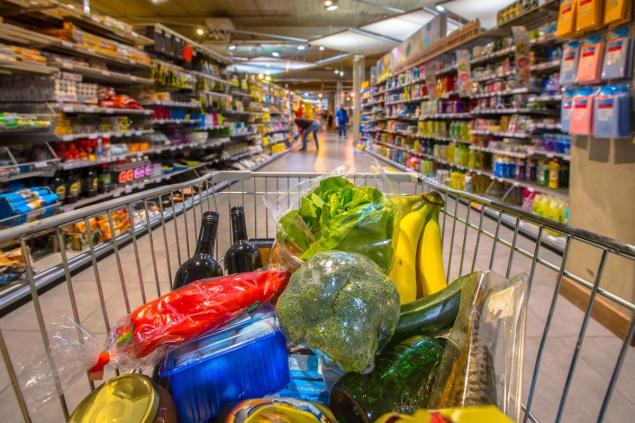
Surely you have a stack of accumulative and discount cards from different stores. At the same time, even if you show your card at the checkout, the cashier can quietly punch his own card and get bonuses for your money. In addition, the presence of a bonus card obliges a subconscious person to choose the store where he will receive a discount.
Price tags Manipulation with price tags can be very different. On the price tag there is almost all the necessary information about the product: the date from which the price acts, the value of the goods, the weight of the goods and its name. Sometimes among the usual price tags stand out promotional yellow or red. However, the price may not change at all. Anyone who does not know how much the product cost previously will take the product with a red “stock” price tag, and will not even notice the trick.
Sometimes the action is from a certain number. The goods are on the shelf with a red price tag, on which the price is pathetically crossed out and a discount of so much percent is effective. It only works in, say, a week. It's written in the price tag in very small letters somewhere in the corner. So, even if the person noticed the difference already at the checkout, he is likely to be uncomfortable to return the goods.

Okay, you checked the date, I think it's relevant. In such cases, it is better to photograph the price tag, because there are failures in the system: price tags do not have time to change or do not change in the database, but the essence is that a correctly punched product can be more expensive at the checkout, that is, without a discount. This is where you have to show the price tag to get the difference back. The fact is that a person, seeing a promotional product, will probably take much more than he needs in order to save. Whether or not they are cheating their customers.
Additional weight of the product Promotion can be written on the package. For example, there is sour cream in bags, on one package everything is as usual. And on the second is a red bold inscription "25 percent as a gift." That is, it is implied that generous manufacturers added 25% sour cream to the package, so it is more profitable to buy such sour cream for the same cost. Unfortunately, this trick is used by many, but not all really add the product to the packaging.
Once I brought home such sour cream and decided to weigh it. Not a gram of sour cream was added to the packaging. But the label works, and many people buy this product. What to say, some manufacturers do not breathe the product. You can check this in the supermarket where there are scales.
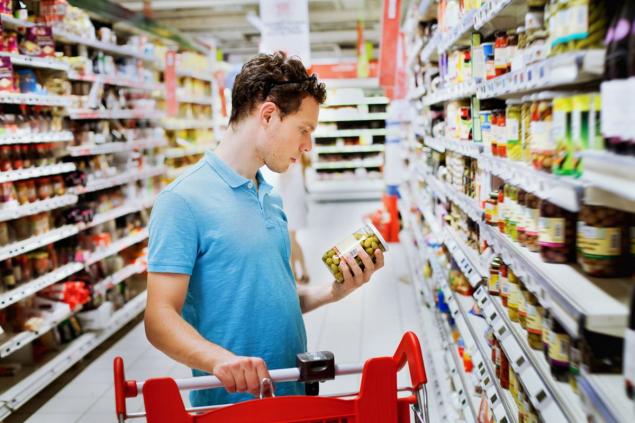
By the way, and during the weighing, a supermarket worker can cheat. It is advisable to weigh the products yourself. Because sometimes employees, weighing the goods, can weigh more product, and quietly lay out a part, pasting the price tag with a preponderance on the package.

There is often no change at the checkout, since most buyers are calculated by card. And when you pay cash, you may not get enough change, by accident. There are hundreds of such accidents per day, as a result, the store makes a profit.
The cashier can break through the goods several times, and if you do not look at the check, you can well overpay. When there is a discrepancy between price and price in the check, the cashier is not to blame. But he must give the difference to the buyer.
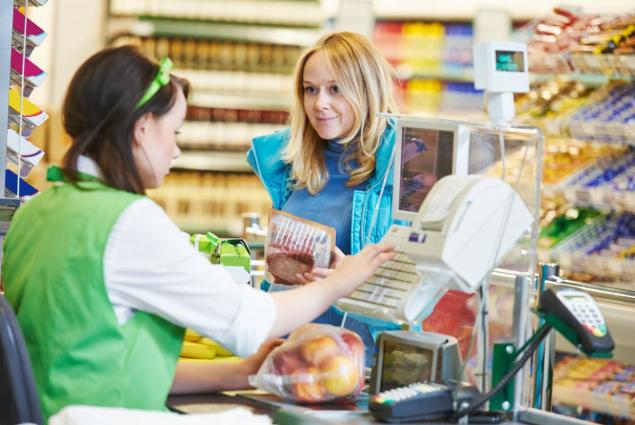
To reduce the risk of being cheated, make a list of necessary products. If you also enter the price of the goods, then at the checkout you can quickly figure out where you overpaid. Of course, food prices are rising every day, but you can take a calculator in the store and count how much money you need to give at the checkout.
If you go to the store with a list of products, and even full, then the risk of buying unplanned tasty nasty things is reduced. It's a fact. Always check the check without leaving the cash register. Even if no one planned to cheat you, the system always crashes. No one will refuse to pay back the money they took from you by mistake.
I am used to looking at the check after buying groceries immediately, as I have repeatedly faced fraud at the checkout. Today we are going to talk about how we are cheated on a daily basis in grocery stores.

Marketers have a lot of ways to attract a buyer, ranging from the color of the package and ending with two for the price of one. Goods are more expensive at eye level, and essential goods are laid out on distant store shelves. So, if you leave work tired and hungry, on the way to get bread and kefir, you will imperceptibly throw in the basket chips, cookies, candy and all sorts of things.
And, meanwhile, you need to enter the store in a sober mind and bright memory. Not only well-fed, but attentive. In supermarkets, even pleasant music is included throughout the hall, so that the buyer relaxed, and, as in delirium, gained excess. But this is not the worst trick yet.

Surely you have a stack of accumulative and discount cards from different stores. At the same time, even if you show your card at the checkout, the cashier can quietly punch his own card and get bonuses for your money. In addition, the presence of a bonus card obliges a subconscious person to choose the store where he will receive a discount.
Price tags Manipulation with price tags can be very different. On the price tag there is almost all the necessary information about the product: the date from which the price acts, the value of the goods, the weight of the goods and its name. Sometimes among the usual price tags stand out promotional yellow or red. However, the price may not change at all. Anyone who does not know how much the product cost previously will take the product with a red “stock” price tag, and will not even notice the trick.
Sometimes the action is from a certain number. The goods are on the shelf with a red price tag, on which the price is pathetically crossed out and a discount of so much percent is effective. It only works in, say, a week. It's written in the price tag in very small letters somewhere in the corner. So, even if the person noticed the difference already at the checkout, he is likely to be uncomfortable to return the goods.

Okay, you checked the date, I think it's relevant. In such cases, it is better to photograph the price tag, because there are failures in the system: price tags do not have time to change or do not change in the database, but the essence is that a correctly punched product can be more expensive at the checkout, that is, without a discount. This is where you have to show the price tag to get the difference back. The fact is that a person, seeing a promotional product, will probably take much more than he needs in order to save. Whether or not they are cheating their customers.
Additional weight of the product Promotion can be written on the package. For example, there is sour cream in bags, on one package everything is as usual. And on the second is a red bold inscription "25 percent as a gift." That is, it is implied that generous manufacturers added 25% sour cream to the package, so it is more profitable to buy such sour cream for the same cost. Unfortunately, this trick is used by many, but not all really add the product to the packaging.
Once I brought home such sour cream and decided to weigh it. Not a gram of sour cream was added to the packaging. But the label works, and many people buy this product. What to say, some manufacturers do not breathe the product. You can check this in the supermarket where there are scales.

By the way, and during the weighing, a supermarket worker can cheat. It is advisable to weigh the products yourself. Because sometimes employees, weighing the goods, can weigh more product, and quietly lay out a part, pasting the price tag with a preponderance on the package.

There is often no change at the checkout, since most buyers are calculated by card. And when you pay cash, you may not get enough change, by accident. There are hundreds of such accidents per day, as a result, the store makes a profit.
The cashier can break through the goods several times, and if you do not look at the check, you can well overpay. When there is a discrepancy between price and price in the check, the cashier is not to blame. But he must give the difference to the buyer.

To reduce the risk of being cheated, make a list of necessary products. If you also enter the price of the goods, then at the checkout you can quickly figure out where you overpaid. Of course, food prices are rising every day, but you can take a calculator in the store and count how much money you need to give at the checkout.
If you go to the store with a list of products, and even full, then the risk of buying unplanned tasty nasty things is reduced. It's a fact. Always check the check without leaving the cash register. Even if no one planned to cheat you, the system always crashes. No one will refuse to pay back the money they took from you by mistake.
Four Arabic proverbs to help build relationships with adult children
I don’t remember much from my childhood, but I cherish the memory of the day my mother baked cakes so we could make it out.
